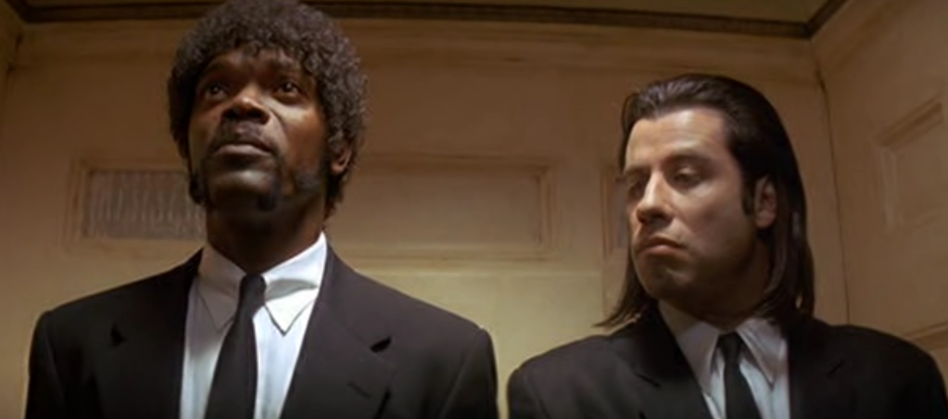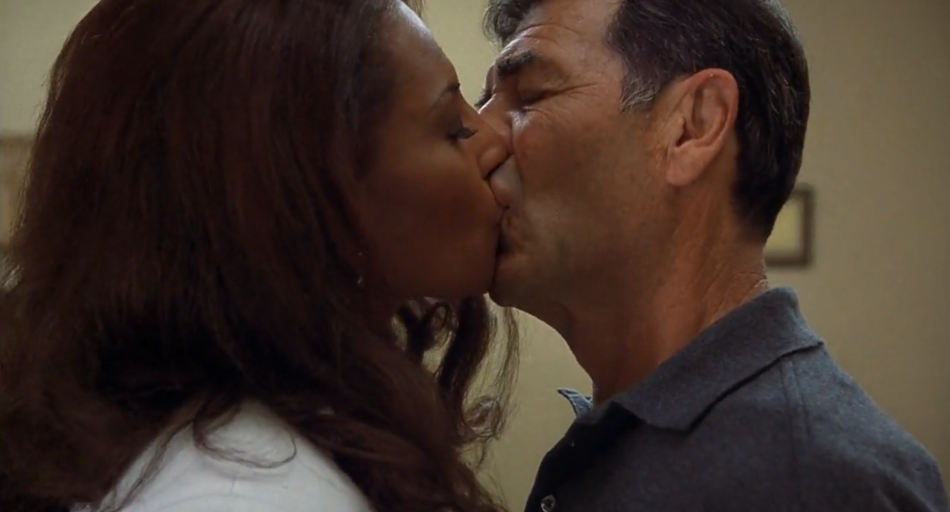Favorite Films - Pulp Fiction (1994) and Jackie Brown (1997)
Jun 05, 24
Quentin Tarantino’s Pulp Fiction, released in 1994, still holds the record for the picture I saw the most at the movies during it’s release. I saw it nine times. Nine times, throughout the summer and fall of my transistion from high school to college. I saw it, then I took two different dates to see it, my sister, my best friends, and I saw it by myself a few times. To say that this movie has sentimental value to me is an understatement. I loved it, and I had never seen a movie that was anything like it.
I screened it yet again a few weeks ago, and so I can say that it holds up just fine. It is a classic. I remember what struck me about it more than anything was its structure. The films starts the story at the end, in the coffee shop, then goes back to the beginning and fills in the gaps, breaking it up into chapters, and this structure, and just generally experimenting with structure, is one of Tarantino’s hallmarks, for better or for worse. If you’ll recall, Pulp Fiction resurrected the career of John Travolta and solidified Samuel L. Jackson as one of America’s favorite actors, and of course tall-drink-of-water Uma Thurman took off from this picture, too. It also established Tarantino as an auteur who can make profitable movies.
Nevertheless, I have a hard time with most of Tarantino’s films. They are live-action cartoons and I just don’t like them, and not in a whatever sort of way, but in a I-hate-this kind of way, in a I-can’t-get-this-time-back kind of way, such as in his ultra-shitty The Hateful Eight or Django Unchained or Kill Bill or Inglorius Basterds or god-help-us-all the horrendous Death Proof. I hate all of those films. They’re goofy cartoons, and sure they are entertaining in a way, but they add up to nothing. In those films, Tarantino isn’t trying to treat some glorified human theme. He’s just trying to write the most pointless but “cool” dialogue he can write, and indulging in his obsession with shitty kung-fu films.
Even Pulp Fiction struggles to say anything important, but does seem to be hinting at something important because it anchors itself with a an obscure Old Testament verse, specifically Ezekiel 25:17, recited with Hellfire and brimstone by Jackson:
The path of the righteous man is beset on all sides by the inequities of the selfish and the tyranny of evil men. Blessed is he who, in the name of charity and good will, shepherds the weak through the valley of darkness, for he is truly his brother’s keeper and the finder of lost children. And I will strike down upon thee with great vengeance and furious anger those who attempt to poison and destroy my brothers. And you will know my name is the Lord when I lay my vengeance upon thee.
Except for this is made up, as far as I can tell. The King James version of Ezeliel 25:17 reads:
And I will execute great vengeance upon them with furious rebukes; and they shall know that I am the Lord, when I shall lay my vengeance upon them.
I don’t care about that so much, but I am making the point that Pulp Fiction seems like it is trying to say something because it borrows heft from the Bible, but in actuality, it isn’t really saying much at all; nevertheless, I still love this movie, and it occupies a special place on my list of favorite films.

Jackie Brown, though, Tarantino’s follow-up picture that was released in 1997, in far-and-away Tarantino’s best film. This one is based on the novel by Elmore Leonard, and it does actually deal with a big human theme, the only picture made by Tarantino that actually does so. It’s theme is middle age, and that delights me because that’s a theme that speaks to adults. In this picture, we get Pam Grier’s Jackie Brown, a middle-aged flight-attendant whose life hasn’t panned out to that point, who resorts to smuggling cash across the Mexican border to supplement her income and maybe get a taste of that brass ring. The entire cast, which includes Jackson, Robert De Niro, Michael Keaton, and my favorite performer in this, Robert Forster, are in that middle-aged bracket, and so the film invites the viewer to see these characters as all dealing with their own mid-life crises in their own unique ways, and the caper plot is there just to advance that theme. Never in film has a kiss been more earned as when Forster’s Max Cherry and Grier’s Jackie Brown get in their absolutely-necessary smooch at the very end. It’s glorious.